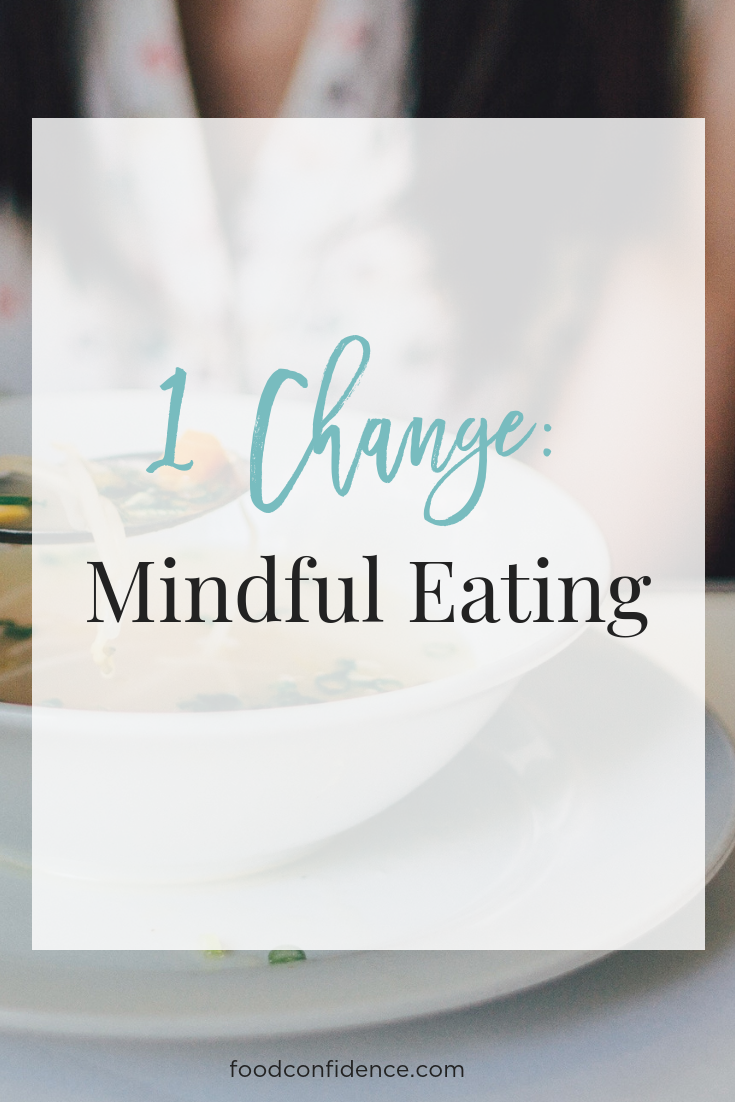
When it comes to losing weight, you know that what you eat is important. But how you eat is important, too.
And if most of your meals are eaten without much thought or attention, you might be a distracted eater.
Distracted eating looks different for everyone. It can mean you’re eating while watching TV, or scrolling through social media, eating in the car, eating standing over the sink, or while you’re walking to the office. Over time, this type of distracted eating can cause weight gain and result in a very disconnected relationship with food.
Being mindful and present while you’re eating can benefit both the body and the mind. It allows you to listen to your hunger and fullness cues and more fully appreciate the eating experience. And because eating while distracted is likely a practiced habit, it can be harder to stop than it sounds.
But there is something you can do about it. Creating a mindful eating practice can help you stop distracted eating, prevent overeating, and get you more in touch with the food on your plate!
What is Mindful Eating?
Eating mindfully basically means that your focus of attention while eating is actually on the eating experience! And by that I mean what’s happening on your plate, in your mouth, and in your body. It means limiting the distractions we discussed above and focusing instead on what your food looks like, smells like, and how it tastes. It’s about noticing the color, and flavor and texture of your food and also how it feels in your body while you’re eating it.
Another aspect of mindful eating is to eat without judgement or criticism – of yourself or the food! It’s about paying attention to where your mind goes while you’re eating and then bringing yourself back.
Have you ever paid attention to the thoughts and feelings that come up while your eating?
Do you feel a sense of anxiety or boredom when eating certain foods?
Do like or dislike the way some food feels in your body?
Do you get annoyed when you try to be more aware of how much or how little you’re eating?
Do you want to pull away from the present moment and just check out?
Do you have the urge to grab a book or your phone, to turn on the TV or to to call someone?
If so, start becoming aware of these thoughts. Practice allowing these feelings to come and go, without judgment. This “mindfulness” while eating is an excellent way to uncover specific eating behaviors that may be causing you to overeat, or that are preventing you from truly enjoying your food.
If you’re new to mindful eating, here are 3 simple strategies to get you started:
- Be present while preparing your food. Instead of looking at food prep as a chore on your to-do list, try to enjoy the process. Put on some tunes or a podcast and enjoy chopping those veggies! Use this time alone to get present and re-set yourself, and to bond with the process of preparing your food from an aligned mindset.
- Just eat when you’re eating. When it comes time to eat, don’t break out your cell phone or turn on the TV. Practice eating without these distractions and allow yourself to notice and enjoy all aspects of the eating experience.
- Actually chew your food. Taking the time to chew your food thoroughly and slowly will encourage you to eat slower, which can improve your digestion, help you eat less food, and improve your overall eating experience. It also forces you to focus on your food!
Benefits of Eating Mindfully
Engaging in mindful eating comes with a ton of benefits:
- Helps with digestion and absorption. Taking the time to chew your food slowly and thoroughly will allow your body to break down the food more thoroughly and increase nutrient absorption.
- Prevents overeating. People eat for all types of reasons that have nothing to do with hunger. Boredom is one of the biggest reason we tend to overeat. Practicing mindful eating can help you to notice what you’re eating, how much, and why.
- Enhances body awareness. Becoming a mindful eater will not only help you become more aware of your hunger cues, but it will also create more body awareness as you begin to pay more attention to how your body feels before, during, and after meals.
- Enhances enjoyment of eating. Taking the time to actually sit down and be present with your meal will increase your overall enjoyment of food, as you learn to savor different flavors, textures, and smells that each meal provides.